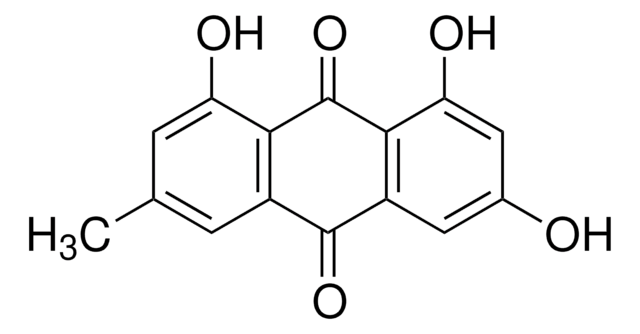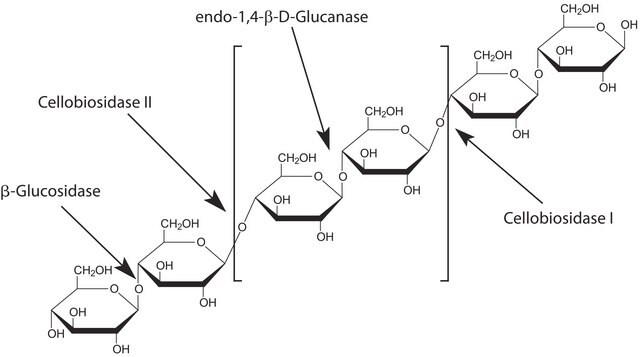B3916
Boldine
analytical standard
Synonym(s):
2,9-Dihydroxy-1,10-dimethoxyaporphine
About This Item
biological source
plant (Peumus boldus molina)
Quality Level
grade
analytical standard
Assay
≥98% (TLC)
technique(s)
HPLC: suitable
gas chromatography (GC): suitable
impurities
≤1% isopropanol
mp
157-164 °C
solubility
ethanol: 50 mg/mL
application(s)
food and beverages
forensics and toxicology
veterinary
format
neat
storage temp.
room temp
SMILES string
COc1cc-2c(CC3N(C)CCc4cc(O)c(OC)c-2c34)cc1O
InChI
1S/C19H21NO4/c1-20-5-4-10-7-15(22)19(24-3)18-12-9-16(23-2)14(21)8-11(12)6-13(20)17(10)18/h7-9,13,21-22H,4-6H2,1-3H3/t13-/m0/s1
InChI key
LZJRNLRASBVRRX-ZDUSSCGKSA-N
Looking for similar products? Visit Product Comparison Guide
Related Categories
General description
Application
Signal Word
Warning
Hazard Statements
Precautionary Statements
Hazard Classifications
Acute Tox. 4 Oral - Eye Irrit. 2 - Skin Irrit. 2 - STOT SE 3
Target Organs
Respiratory system
Storage Class Code
11 - Combustible Solids
WGK
WGK 1
Flash Point(F)
Not applicable
Flash Point(C)
Not applicable
Personal Protective Equipment
Choose from one of the most recent versions:
Already Own This Product?
Find documentation for the products that you have recently purchased in the Document Library.
Customers Also Viewed
Our team of scientists has experience in all areas of research including Life Science, Material Science, Chemical Synthesis, Chromatography, Analytical and many others.
Contact Technical Service





